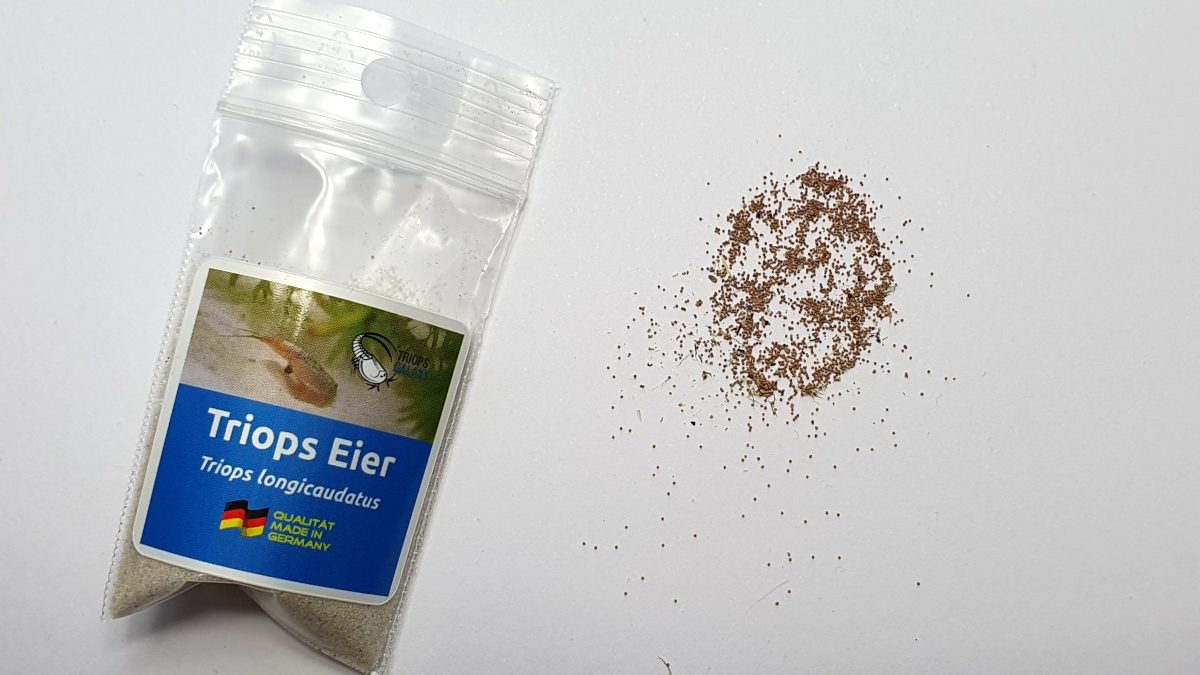Guide
Nature’s conservation: Why don’t nauplii hatch from every egg?
Over 200 million years ago, dinosaurs populated our planet until a tragic mass extinction at the end of the Cretaceous marked an abrupt end to their era. But unlike the dinosaurs, the Triops proved remarkably resilient and have survived to this day. Triops, whose name means “the three-eyed one” in Greek, owe their amazing existence to a long and fascinating evolution. Nowadays it is possible to breed Triops right from home and get to the bottom of their fascinating history. These fascinating creatures with their three eyes offer us the opportunity to take a look into the past and at the same time experience the wonders of nature in our own environment. In this blog post, I explain how nature’s species conservation works in Triops breeding and why not every Triops egg hatches into a nauplii.

Natural conservation without human intervention
The term “nature-based conservation” refers to the process by which species are maintained in nature without direct human intervention. It refers to the natural mechanisms and factors that contribute to the maintenance and reproduction of species without the need for human intervention.
Nature-based species conservation encompasses a variety of factors and processes, including:
- Adaptability: Species have developed different adaptations over the course of evolution to adapt to their specific habitats, food sources and climatic conditions. These adaptations enable them to successfully survive and reproduce in their natural environment.
- Reproductive strategies: Species have developed specific reproductive strategies to raise their offspring and maintain their populations. This can take various forms, such as the use of specific mating behaviours or the formation of stable social structures.
- Natural selection: Through the mechanism of natural selection, the best adapted individuals of a species to the environment are favoured, while less well adapted individuals have less chance of survival. This helps to ensure that the traits and characteristics that are important for the survival and reproduction of a species are maintained over generations.
- Ecosystem dynamics: The interactions between species and their habitat within an ecosystem play an important role in species conservation. The diversity of species, their dependence on each other and their interactions such as food chains and symbioses influence the stability and balance of the ecosystem and contribute to the maintenance of species diversity.
It is important to note that human activities such as pollution, habitat destruction, climate change and overuse of resources can affect nature-based species conservation. Therefore, the protection and conservation of natural habitats and the promotion of sustainable practices is of great importance to support species conservation in nature.
Conservation of nature in triops breeding
Nature is smarter than we think. Nature-driven species conservation has meant that Triops have survived to the present day and are considered a prehistoric species. In their natural environment, such as water ponds and puddles created by seasonal flooding, they have perfected their survival strategies.
Before the waters dry out, the female Triops lay permanent eggs. These eggs are remarkably resilient and can survive extreme conditions such as heat, cold, drought and UV rays for many years. They remain in a dry state until they come into contact with water under suitable climatic conditions. This contact with water activates the eggs and triggers an impulse to hatch.
However, it is important to note that not all eggs hatch at the same time.
The other eggs can remain in a dry state for many years and even decades before they hatch. This delay is an ingenious survival strategy of nature. This phenomenon ensures that not all Triops hatch at the same time, but that the population remains stable over a longer period of time. If all the eggs were to hatch at the same time, the Triops’ ability to survive would be severely endangered.
Nature has thus found an impressive way to ensure the preservation of the species of prehistoric crustaceans. Thanks to this survival strategy, the Triops have survived until today and are among the oldest living organisms on our planet. It is fascinating to realise what ingenious mechanisms nature has produced to ensure the continued existence of these amazing creatures.